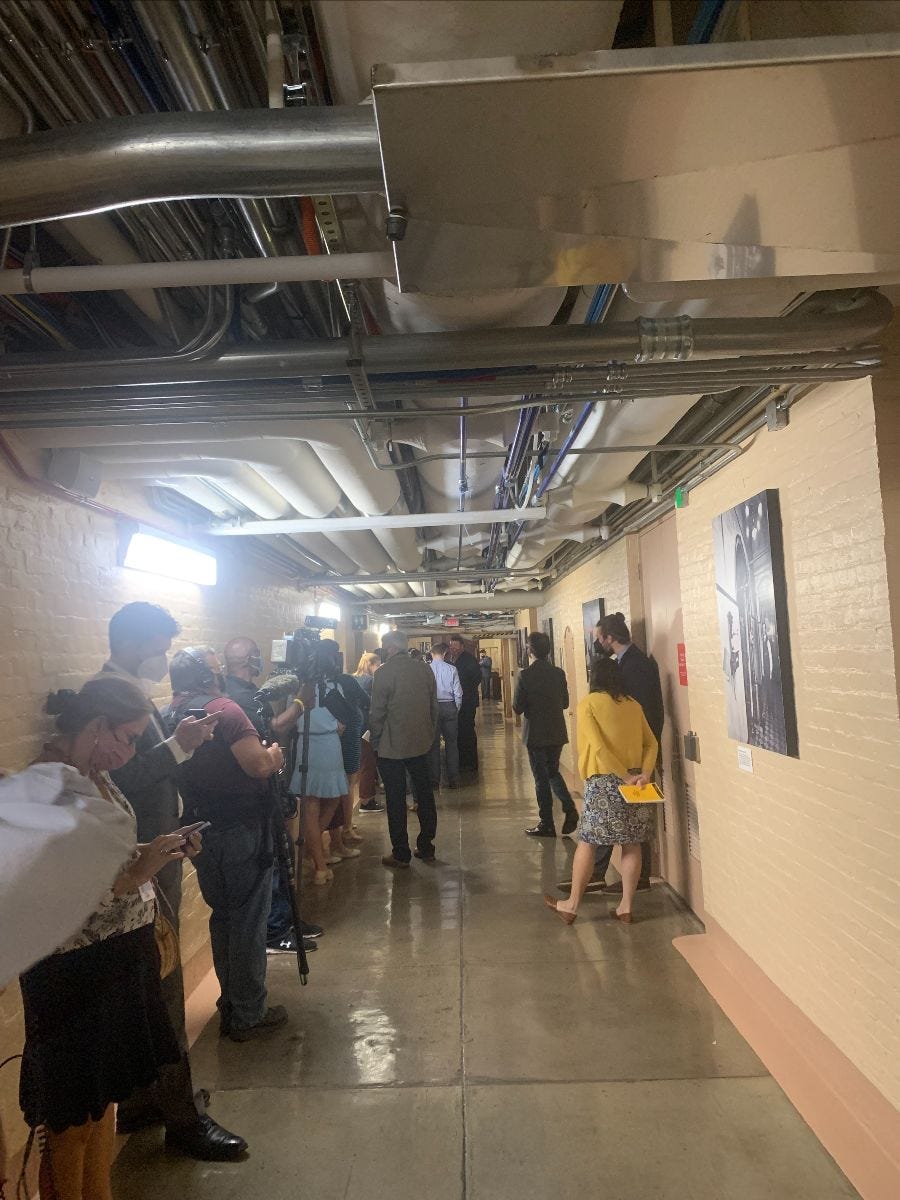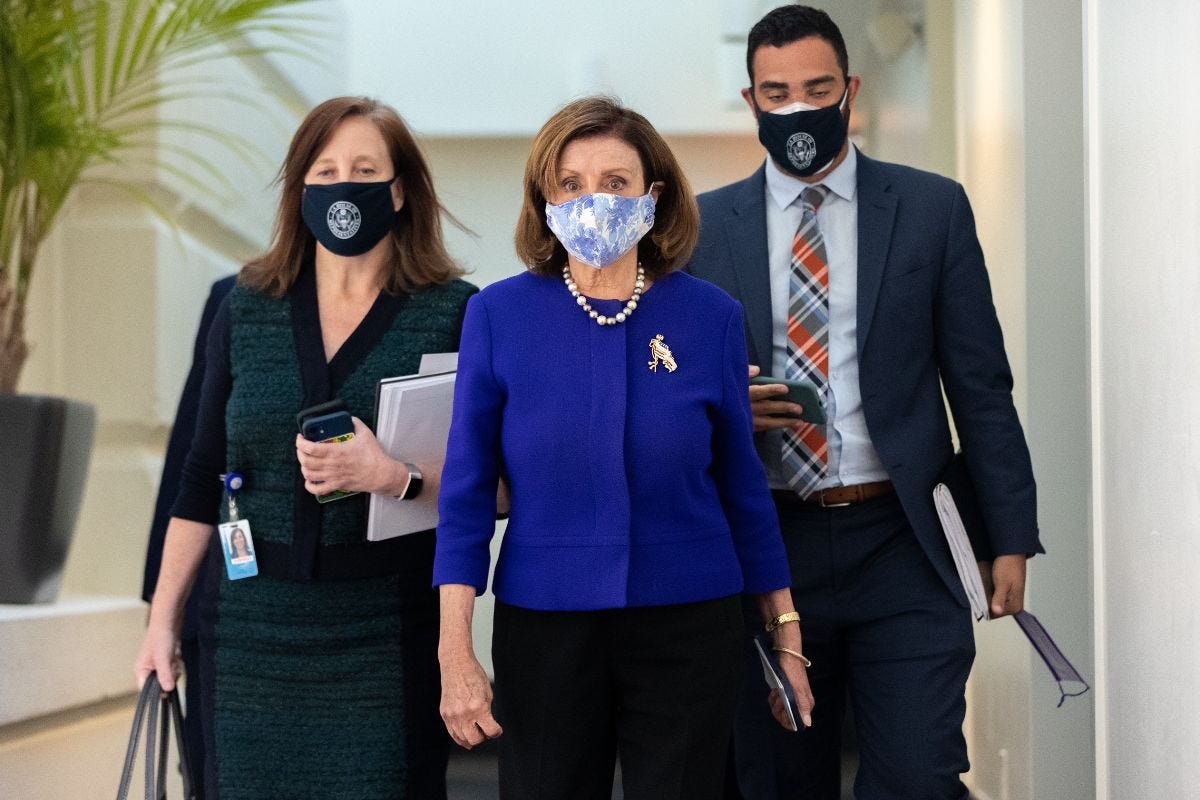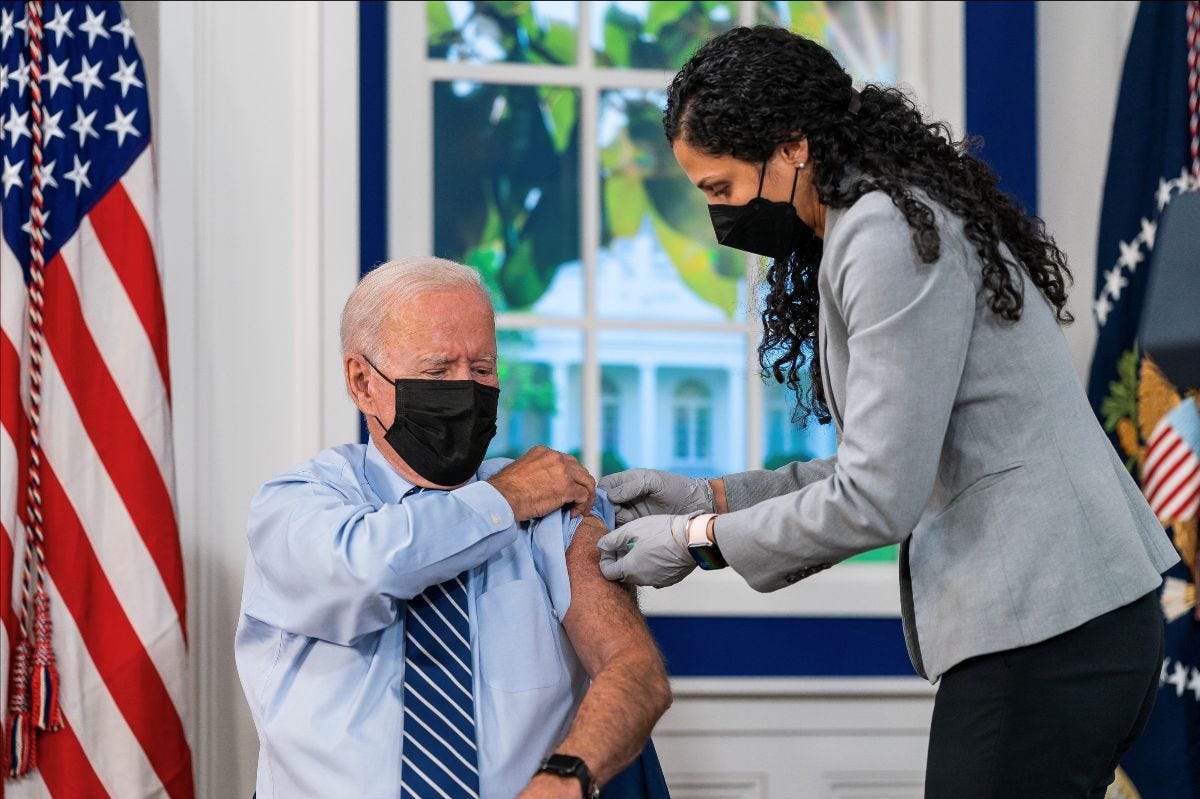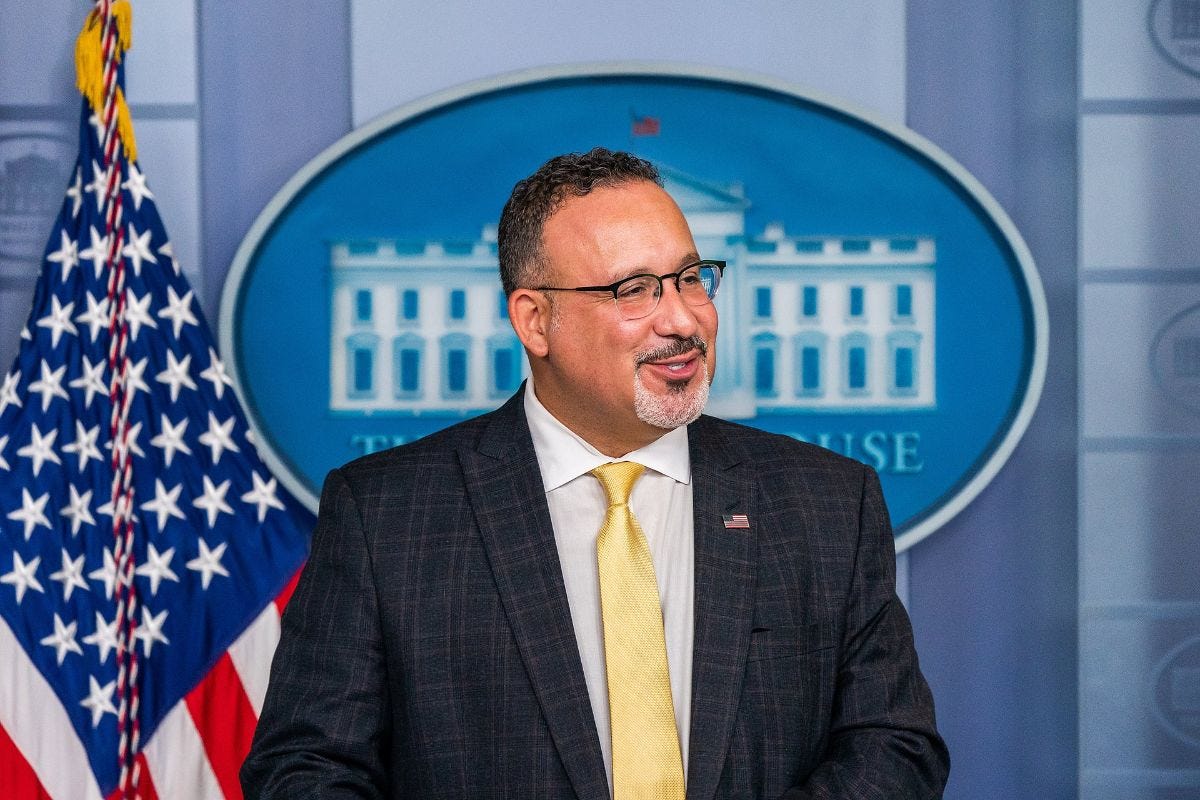Good morning! It’s Tuesday, September 28, 2021. Election Day 2022 is 406 days away. Election Day 2024 is 1,134 days away.
Reporter’s Notebook: Pelosi picks a side in Democratic spending split
In the best of times, the 220-member House Democratic Caucus is a difficult group to keep together. Full of various factions representing every demographic imaginable — ideology, geography, age, race, etc. — it is no easy feat to ensure the caucus remains united on hot-button issues.
And that holds true even when there’s not $5 trillion and a chance to reshape the American economy on the line.
Facing the challenge of ushering a $1.2 bipartisan infrastructure package and a $3.5 trillion spending package through her chamber, House Speaker Nancy Pelosi (D-CA) convened a “family meeting” on Monday to allow moderate and progressive Democrats to hash out their differences.
According to the New York Times, Washington Post, Politico, and other sources, Pelosi sided with the moderates — moving forward with her plan to hold a vote on the bipartisan package this Thursday, and dropping her promise to progressives that the larger (and as yet unfinished) spending bill would receive a vote this week as well.

But progressive members I spoke to at the Capitol on Monday did not seem ready to fall in line behind Pelosi. While the speaker effectively reversed her previous position and de-linked the two packages during the caucus meeting, the measures remain very much coupled together in the eyes of progressives. And the liberals offered no signal that they planned to drop their threat to sink the bipartisan bill — a major achievement for President Joe Biden — unless the spending package is passed first.
“The bills are linked,” Rep. Ilhan Omar (D-MN), the Congressional Progressive Caucus whip, maintained to a gaggle of reporters outside the Capitol after the meeting. “And they have to be linked in order for anything to pass the House.”
Asked by one reporter if progressives were willing to “take one for the team” and vote for the bipartisan bill without the $3.5 trillion package, Omar was quick to respond. “Absolutely not,” she said.
Still, most Democrats were optimistic that the caucus would eventually come together, insisting that Pelosi would find a way out of the quagmire. Pelosi’s members have an almost unshakable faith in her legislative abilities, pointing to the high-stakes negotiations she has presided over in the past — although few have been as complex or consequential as the logjam she finds herself in now.
“Speaker Pelosi is always confident, because she’s a magical legislator who gets the votes,” Rep. Steve Cohen (D-TN) told the group of us lining the halls of the House basement waiting for members to emerge from the caucus meeting.
Rep. Rosa DeLauro (D-CT), a close Pelosi ally, told me that the mood in the room had been “very, very upbeat” and “very supportive of both bills and wanting to get this done.” The entire caucus recognizes this as “an historic moment,” she added: “Whenever have we had such an opportunity to deal with legislation that would make such a difference in people’s lives?”

But a lot of the path forward is out of Pelosi’s hands — or anyone who was in that room on Monday, for that matter. The real power players, as ever within the slim Democratic congressional majorities, are centrist Sens. Joe Manchin (D-WV) and Kyrsten Sinema (D-AZ). No spending package will pass the Senate without their say-so, and Pelosi has promised only to put a reconciliation bill up for a vote in the House if it can pass the Senate.
One possible compromise to ensure the bipartisan package passes on Thursday would be for Manchin and Sinema to ink an agreement with progressives by then on what will be in the reconciliation bill, so the liberal wing at least has a verbal commitment of what can pass — since an actual vote on the spending bill seems impossible this week.
The chair of the Congressional Progressive Caucus, Rep. Pramila Jayapal (D-WA), seemed open to that approach as she left the caucus meeting, although she emphasized that “the whole bill has to be agreed upon.”
It’s unclear if all of Jayapal’s lieutenants are open to this compromise. “When I talk about infrastructure, we talk about both bills together and we talk about reconciliation coming first,” Rep. Jamaal Bowman (D-NY), a CPC member, told me. “So that’s the expectation. That’s going to cone first, and then we’ll deal with the [bipartisan package] when it gets there.”
“Manchinema,” though, are in no rush to outline exactly what they’ll allow in the reconciliation package. The moderate duo hold all the cards right no, and they’ve been hesitant to give up their leverage and divulge any specifics. When I asked Cohen if Manchin and Sinema’s stance came up in the caucus meeting, he told me “yeah,” but declined to elaborate. “Senator Manchin is Senator Manchin,” he said simply.
Remaining tight-lipped on specifics was a theme throughout the day. Although the Democrats were fond of emphasizing that they cared about the issues in the $3.5 trillion package, not the topline numbers, they did not always seem thrilled to jump into the weeds of the remaining policy disputes. Instead, they expressed confidence that the differences would eventually be ironed out behind closed doors, even if the endgame was not yet in sight.
“I can’t,” Rep. Richard Neal (D-MA), chairman of the tax-writing House Ways and Means Committee, responded when asked where his panel was headed on the debate over restoring the state and local tax (SALT) deductions. “I am headed,” he said only.

What else you should know
Down to the wire. Senate Republicans blocked a Democratic bill on Monday that would fund the government through December 2021 and lift the debt ceiling through December 2022. Lawmakers are now racing to find an alternative before the government is set to shut down at midnight Friday and default on its debt next month.
Booster shots. President Joe Biden and Senate Majority Leader Mitch McConnell (R-KY) both received their COVID-19 booster shots on Monday, a bipartisan endorsement of the CDC’s plan to offer third vaccine doses to older Americans and those who have underlying medical conditions or work in high-risk settings. “I know it doesn’t look like it, but I am over 65,” Biden joked as he received the shot.
Immigration. The Biden administration plans to unveil a new rule that would revive the Deferred Action for Childhood Arrivals (DACA) program, an Obama-era initiative that protects immigrants who arrived in the U.S. illegally as minors from being deported. Biden officials are attempting to remedy the problems with the original program outlined in July by a Texas-based federal judge, who struck down DACA on the grounds that the Obama administration had not take the proper administrative steps to set it up.
Policy Roundup: Education
A weekly briefing by Wake Up To Politics education contributor Kirsten Shaw Mettler.
The New York City school vaccine mandate survived a legal test. On Monday, a panel of federal judges confirmed that NYC can require educators to be vaccinated. A federal appeal judge had temporarily blocked the mandate last week, referring the case for expedited review. More than 82% of employees impacted by the potential mandate have already been vaccinated, according to the city.
Two new studies from the CDC provide further evidence that masks prevent COVID-19 outbreaks in schools. One study found that schools without mask mandates were 3.5 times more likely to have an outbreak; the other concluded that COVID-19 cases rose more rapidly in counties that do not require school masks. The pandemic continues to impact education, as 9,000 students in 44 states have already been impacted by school closures for the 2021-21 academic year.
Florida schools impacted by mask bans will receive federal funding. Secretary of Education Miguel Cardona announced on Thursday that the department will be sending $148,000 to Alachua County Public Schools to compensate for money being withheld by a Florida law banning mask mandates. The financial transfer is part of the new Project to Support America’s Families and Educators, or “Project SAFE,” which is designed to aid schools that are “penalized for implementing strategies to prevent the spread of COVID-19.”
More education policy headlines, via Kirsten:
Nine college faculty interest groups are asking the federal government to include institutions of higher education in their COVID-19 vaccine mandate.
A government shutdown may be on the horizon; read about how colleges and universities will be impacted.
Schools continue to face resource and infrastructure challenges with the return back to school.
Daybook
All times Eastern, unless otherwise noted.
WHITE HOUSE
President Joe Biden will receive his daily intelligence briefing at 10:30 a.m.
White House Press Secretary Jen Psaki will hold her daily press briefing at 1:30 p.m.
U.S. public health officials will hold their weekly COVID-19 press briefing at 12:30 p.m. CDC Director Rochelle Walensky, NIAID Director Anthony Fauci, White House COVID-19 coordinator Jeff Zients, and White House COVID-19 senior adviser Marcella Nunez-Smith will participate.
CONGRESS
The Senate will convene at 10 a.m. and resume consideration of the nomination of Karen Donfried, the president of the German Marshall Fund think tank, to be Assistant Secretary of State for European Affairs and Eurasian Affairs. At 11:30 a.m., the chamber will vote on Donfried’s confirmation.
The chamber will then resume consideration of the nomination of Monica Medina to be Assistant Secretary of State for Oceans and International Environmental and Scientific Affairs. Medina served in environmental policy roles in the Clinton and Obama administrations; she is also the wife of White House chief of staff Ron Klain.
At 2:15 p.m., the Senate will recess for weekly caucus meetings. Upon returning, the chamber will vote on Medina’s confirmation and then debate and hold confirmation votes on three other State Department nominees:
Mary Catherine Phee, the former U.S. ambassador to South Sudan, to be Assistant Secretary of State for African Affairs
Todd Robinson, who has held diplomatic posts in Venezuela and Guatemala, to be Assistant Secretary of State for International Narcotics and Law Enforcement Affairs
Jessica Lewis, the staff director of the Senate Foreign Relations Committee, to be Assistant Secretary of State for Political-Military Affairs
The House will convene at 10 a.m. and continue debating H.R. 3684, the $1.2 trillion bipartisan infrastructure package. Later, the chamber is scheduled to vote on five pieces of legislation under “suspension of the rules”:
H.R. 1693, the EQUAL Act
H.R. 4981, to amend the Fentanyl Sanctions Act, to modify certain deadlines relating to the Commission on Combating Synthetic Opioid Trafficking
H.R. 4250, the War Crimes Rewards Expansion Act
H.R. 1228, the Libya Stabilization Act
H.R. 4686, the Cambodia Democracy Act
CONGRESSIONAL COMMITTEES
The Senate Armed Services Committee will hold a hearing at 9:30 a.m. on the Afghanistan withdrawal. The highly-anticipated session will feature testimony from Defense Secretary Lloyd Austin, Chairman of the Joint Chiefs of Staff Mark Milley, and U.S. Central Command chief Kenneth McKenzie.
The Senate Banking, Housing, and Urban Affairs Committee will hold a hearing at 10 a.m. on spending from the CARES Act, the $2.2 trillion coronavirus relief package passed in March 2020. Treasury Secretary Janet Yellen and Federal Reserve Chair Jerome Powell will testify.
The Senate Judiciary Subcommittee on the Constitution will hold a hearing at 2:30 p.m. on reforming conservatorships, inspired by the plight of Britney Spears.
COURTS
The Supreme Court is not in session.
CAMPAIGNS
New Jersey Gov. Phil Murphy (D) and former state Assemblyman Jack Ciattarelli (R) will face off in a debate at 7 p.m. It is the first of their two debates in the New Jersey gubernatorial election, which will be held this November.
Thanks for waking up to politics! If you enjoy reading this newsletter, I’d be so grateful if you’d consider donating to help support me and my work. If you want to show off your support for Wake Up To Politics, you can also buy some merchandise.
Also: don’t forget to tell your friends and family to sign up for the newsletter using your unique referral link. And if you have any questions or comments, feel free to email me at any time.







